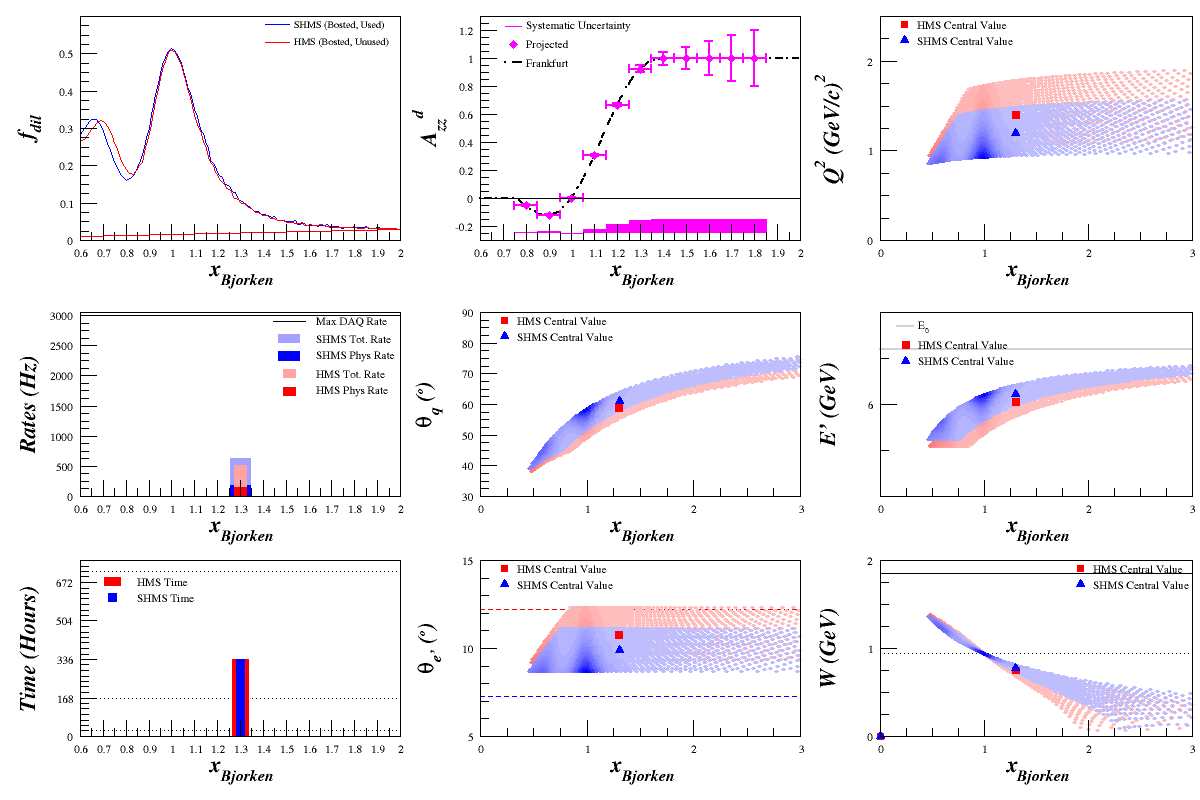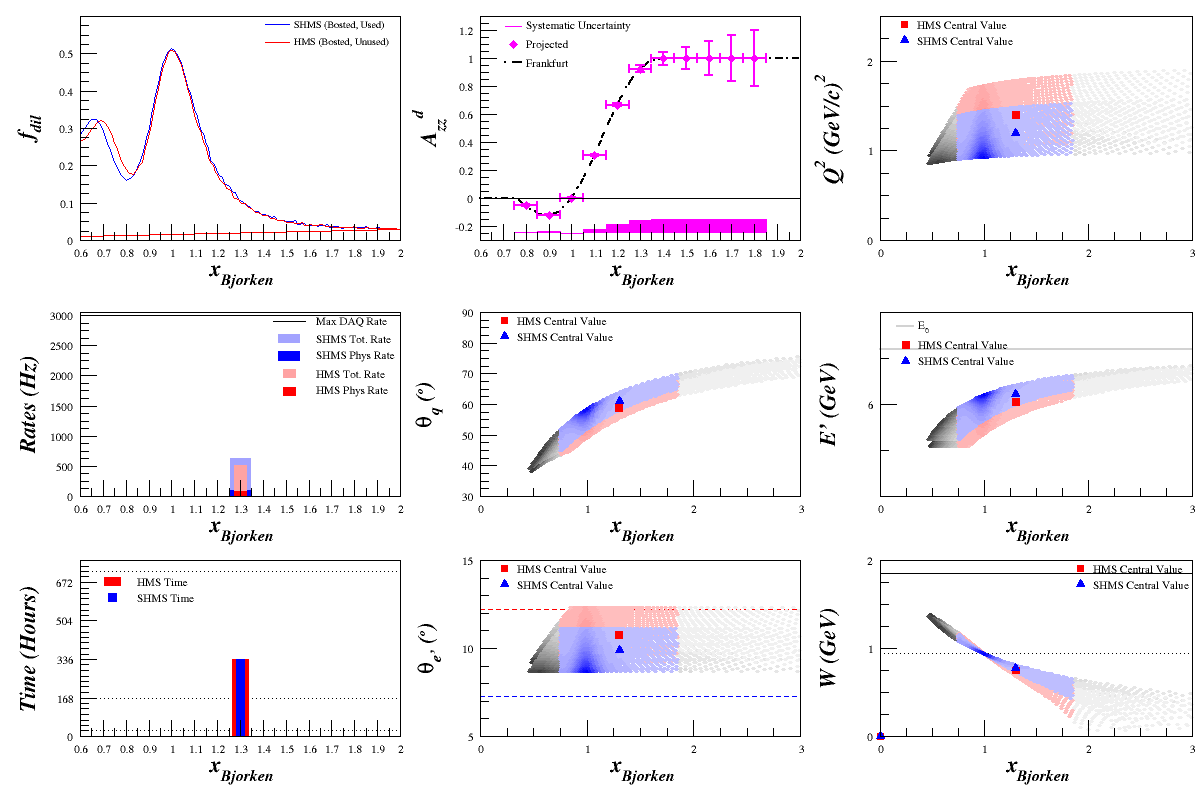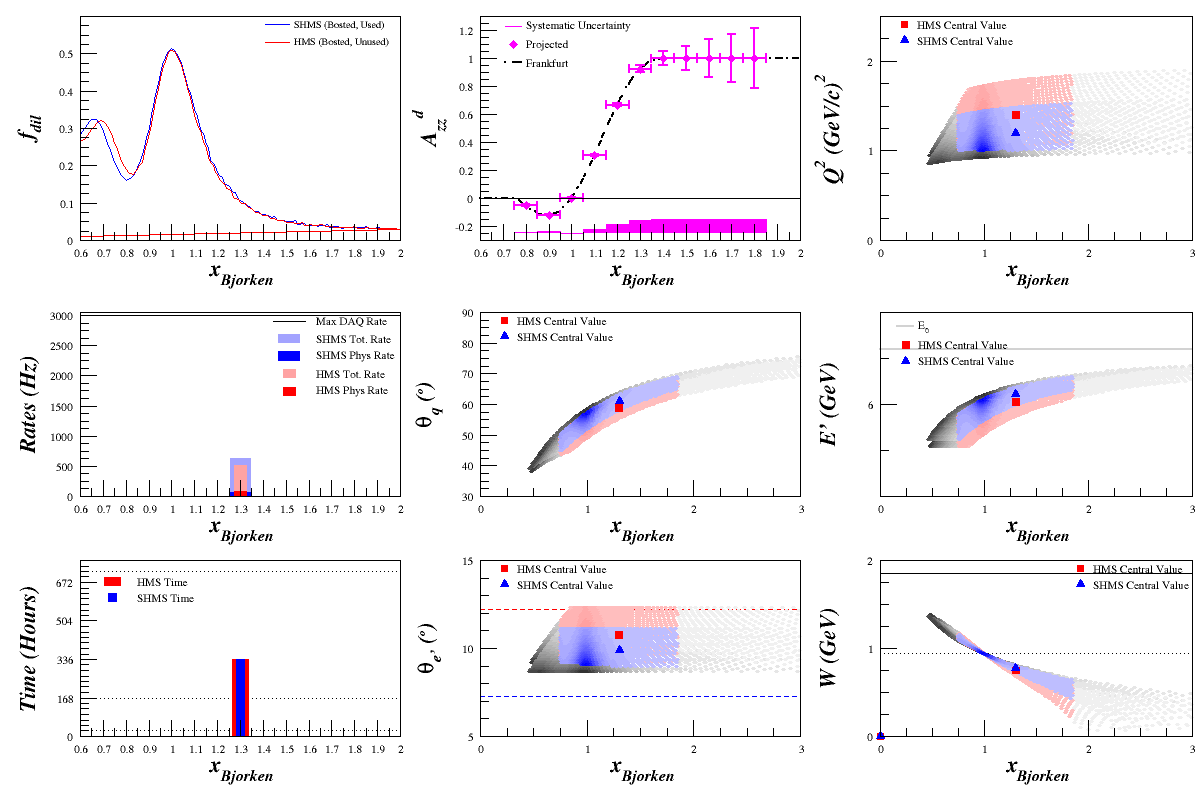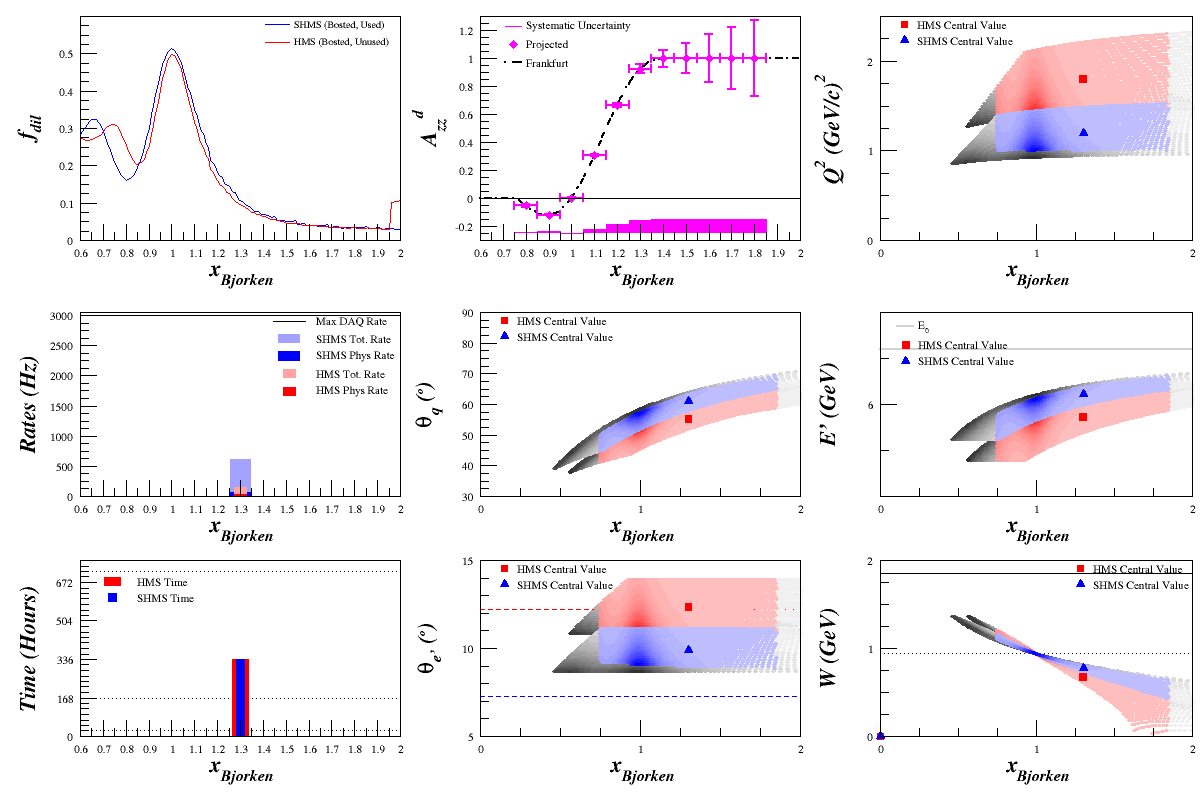Difference between revisions of "Elong-13-10-10"
(New page: ===Azz with Color-Coded Plots=== ---- I took the edited the output of Azz plots so that they have their own, dedicated grace files. I then replaced the b1 plot with the dilution factor a...) |
|||
| (10 intermediate revisions by the same user not shown) | |||
| Line 3: | Line 3: | ||
---- | ---- | ||
| − | I took the edited the output of Azz plots so that they have their own, dedicated grace files. I then replaced the b1 plot with the dilution factor and shaded the kinematics plots by the total cross-section (N+He+2H), where darker = larger cross-section and lighter = smaller cross-section. | + | I took the edited the output of Azz plots so that they have their own, dedicated grace files. I then replaced the b1 plot with the dilution factor and shaded the kinematics plots by the total cross-section (N+He+2H), where darker = larger cross-section and lighter = smaller cross-section. The cross-sections each have 20 shading bins, with the cross section in that section being linearly scaled to fit from 1-20. This means that it's not the same scale across spectrometers, or from cuts to background, just to keep in mind. I included it to get a sense of where our data is coming from. |
| + | |||
| + | I also changed the "Physics Rate" to mean the rate from 2H within the kinematics cuts. Previously, it was the total rate (14N+4He+2H) within the cuts. | ||
| + | |||
| + | ===No Cuts=== | ||
If we don't make any cuts on the kinematics, we can get a sense for the cross-section everywhere: | If we don't make any cuts on the kinematics, we can get a sense for the cross-section everywhere: | ||
| Line 9: | Line 13: | ||
[[Image:2013-10-10-e-66-cs-exp1.png]] | [[Image:2013-10-10-e-66-cs-exp1.png]] | ||
| − | If we | + | ===0.75<x<1.85 Cut=== |
| + | If we then add the x cut, the thrown-out events, still in grey, are now also shaded: | ||
[[Image:2013-10-10-e-66-cs-exp2.png]] | [[Image:2013-10-10-e-66-cs-exp2.png]] | ||
| + | ===0.75<x<1.85 and Q^2>1 Cuts=== | ||
And adding a Q2>1 cut: | And adding a Q2>1 cut: | ||
[[Image:2013-10-10-e-66-cs-exp3.png]] | [[Image:2013-10-10-e-66-cs-exp3.png]] | ||
| + | |||
| + | ===HMS<sub>min</sub>=12.2 degrees=== | ||
| + | [[Elong-13-10-11b|Since it turns out that the HMS is restricted from the target to a minimum angle of 12.2 degrees]], then we can expect the following: | ||
| + | |||
| + | [[Image:2013-10-10-e-66-cs-exp4.png]] | ||
| + | |||
| − | --[[User:Ellie|E. Long]] | + | --[[User:Ellie|E. Long]] 22:19, 10 October 2013 (UTC) |
Latest revision as of 14:27, 11 October 2013
Azz with Color-Coded Plots
I took the edited the output of Azz plots so that they have their own, dedicated grace files. I then replaced the b1 plot with the dilution factor and shaded the kinematics plots by the total cross-section (N+He+2H), where darker = larger cross-section and lighter = smaller cross-section. The cross-sections each have 20 shading bins, with the cross section in that section being linearly scaled to fit from 1-20. This means that it's not the same scale across spectrometers, or from cuts to background, just to keep in mind. I included it to get a sense of where our data is coming from.
I also changed the "Physics Rate" to mean the rate from 2H within the kinematics cuts. Previously, it was the total rate (14N+4He+2H) within the cuts.
No Cuts
If we don't make any cuts on the kinematics, we can get a sense for the cross-section everywhere:
0.75<x<1.85 Cut
If we then add the x cut, the thrown-out events, still in grey, are now also shaded:
0.75<x<1.85 and Q^2>1 Cuts
And adding a Q2>1 cut:
HMSmin=12.2 degrees
Since it turns out that the HMS is restricted from the target to a minimum angle of 12.2 degrees, then we can expect the following:
--E. Long 22:19, 10 October 2013 (UTC)



